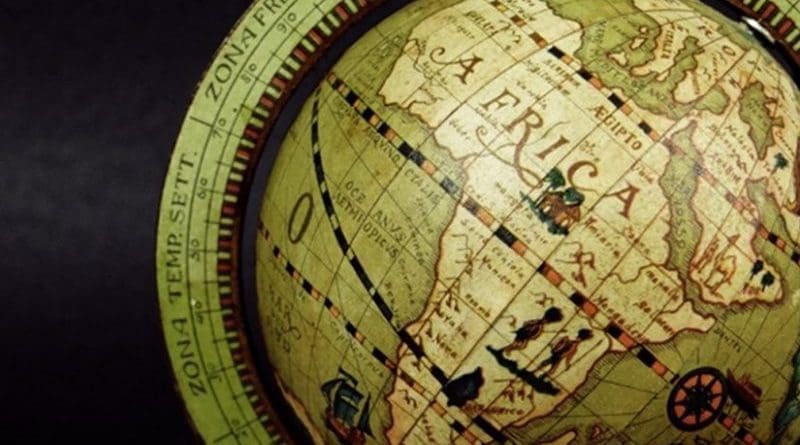African Economy At Crossroads – OpEd
The African economy and development models are based on free market system. This is an economic system characterized by private or corporate ownership and public sector supports only in urgent and areas of national interest of economy.
According to the World Bank, Africa’s gross domestic production (GDP) estimated 4.5% in 2015 and high economic growth witnessed in Democratic Republic of Congo (9%), Ethiopia (8.5%0, Mauritania (5.6%), Mozambique (7.5%) and Cote d’Ivoire (7.5%) while low growth recorded in Sudan (3.1%), Zimbabwe (3.2%) Tunisia (3%) Equator Guinea (-8.7%) and Sierra Leone (-2.5%)
Africa is one of the wealthy continents with abundant natural resources. Governments obtain plenty of revenue from export of natural resources. From precious metals – gold, diamond, platinum to most wanted resources – petroleum, minerals etc. are available. But there is a big question mark whether these natural resources are blessing or cuss word for Africa?
The African economy is suffering from extreme inequalities in its society with lack of employment and underdeveloped manufacturing and agriculture sectors. 10% of richest populations are enjoying around 44% of income or consumption of the continent.
Oil-exporting countries generally expanded their economy more strongly than oil-importing countries. West Africa and East Africa are the two well-performing sub regions.
The African capital cities seem to be well developed similar to big metropolitan cities of a developed country. Out of the capital and big cities, the majority of peripheral village and remote location are undeveloped; poor and disparities are visible between rich and poor. More than 50% of population is below poverty line, with income of less than US$1 per day and who are in dire necessity of basic needs like food, cloth and shelter.
Private and corporate houses are performing better in lucrative sector and locations. Government, donors and the corporate sectors seem more interested to construct highways, airports, railways, seaports, oil pipeline, and energy projects. Furthermore, mines and petroleum exploitation industries, telecommunication, high value agriculture products like tea, coffee, cocoa, leather export processing industries are running successfully. Major share of urban economy depend on service sector. These sectors are supporting national economy up to great extent.
But the industrial and agriculture sector are not capable to support requirement of food and necessities of the people. Moreover, manufacturing industries are lagging behind and most of the capital goods, machinery, vehicle, electronics, heavy equipment and other items are imported from outside. Major industries are considered to be assembling or high profitable primary consumer-based productions. Development of export-oriented manufacturing items and heavy industries need great effort to get flourish.
Moreover, difficulty observed in implementing small projects, which support poor and weak communities and social services like education, health, drinking water and rural infrastructures are in primitive stage. Agriculture, livestock sector, which are backbone of rural population are also very traditional. Major share of land are occupied by limited powerful people. Only small number of farmers and marginalized people own land for cultivation. Development of agriculture means development of village and development of village means real development of a nation. A country should be self sufficient in production of foodstuff and mass consumable items, it is considered to be primary base for forward activities
China, India and South Africa are the top most investors in Africa. Remittance received from foreign countries is top source of foreign currency. EU and China are leading trade partners.
Africa receives roughly $50 billion of international assistance each year. Yet evidence overwhelmingly demonstrates that aid to Africa has made the poor poorer, and the growth slower. Truly speaking there are four important objectives of aid flows as: to gain political support of the donors, to accelerate growth in the recipient country, to increase donors export and to improve income distribution in recipient country.
Endemic warfare and unrest, widespread corruption, and despotic regimes are both causes and effects of the continued economic problems. Stealing money from the government treasury is extreme example of corruption in Africa. For example, a former government minister in Nigeria stole $6bn of public money, a state governor has alleged and South Sudan’s president accused government officials of plundering at least $4bn from state coffers.
Ethnic conflict and armed groups presence in the countries of sub-Sahara region are considered to be product of political instability and consequently expenditure on security is ever increasing. Major share of government spending goes on security and recurrent expenditures and limited capital expenditures are concentrated in urban areas. Democratic Republic of Congo, Sudan, Ethiopia, Mali, South Africa, Chad, South Sudan, Somalia, and Nigeria are the countries where conflicts are in higher level compared to other countries.
Too much politics and high attachment of economic agenda with politics have caused afflictions. For majority of the poor people below poverty line, development has little meaning. Government should increase budget many folds in rural areas and social security incentives should be provided to weak, vulnerable and poor communities of the society.
Economic growth is one process of development; economics can unite than politics. National development should not be baffled under any beliefs. Without identifying illness of the economy from the source, it can’t be healed only by temporary cure at outward level. Many countries are in a critical stage of economic transition and if the economy cannot perform better and be balanced, economic misfortune and conflicts would continue years to come.
*Author is a former expert United Nations Africa.

